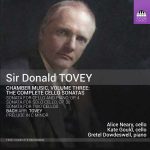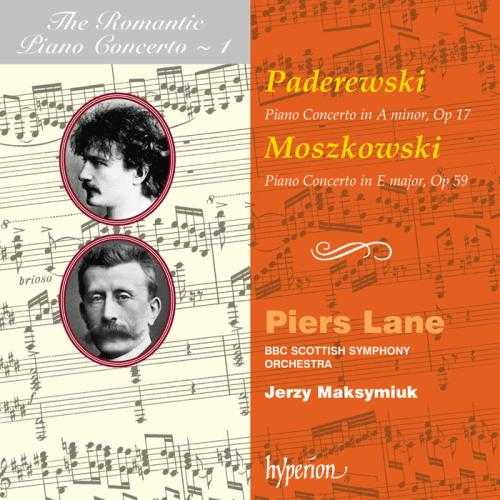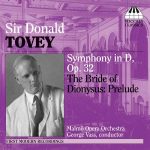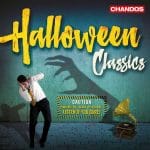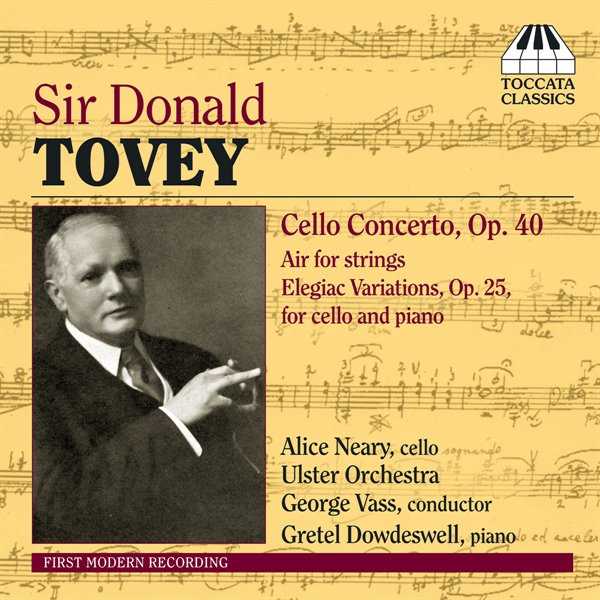
Composer: Donald Francis Tovey
Performer: Alice Neary, Gretel Dowdeswell
Orchestra: Ulster Orchestra
Conductor: George Vass
Format: FLAC (tracks)
Label: Toccata
Catalogue: TOCC0038
Release: 2006
Size: 253 MB
Recovery: +3%
Scan: cover
Cello Concerto in C Major, Op. 40
01. I. Allegro moderato
02. II. Andante maestoso
03. III. Intermezzo. Andante innocente, con moto quasi allegretto
04. IV. Rondo. Allegro giocoso
Aria and Variations in B-Flat Major, Op. 11 (Arr. P. Shore for string orchestra)
05. Air for strings
06. Elegiac Variations, Op. 25
Sir Donald Tovey is known primarily as a music journalist and historian; his book Essays in Musical Analysis is a standard text used in teaching, and his thoughts on understanding the aesthetics of music from examining its internal structure changed the course of contemporary musicology. Tovey viewed himself; however, as a composer, pianist, and conductor, and his close friend Pablo Casals commented that Tovey was “one of the greatest musicians of all time.” You certainly wouldn’t gather that from the extent to which his music has been recorded, and the revival of Tovey is more or less purely a twenty-first century thing. Here, Toccata Classics, helmed by former classical music critic Martin Andersson, introduces the first modern recording of Tovey’s masterwork, his Cello Concerto, Op. 40 (1934), already acknowledged as the longest, most ambitious concerto in the history of cello literature even when the only recorded performance was in a poor-quality BBC broadcast featuring Casals as soloist.
Tovey had an analytical mind, and the booklet contains Tovey’s own breakdown of the work in terms of analysis. This is a treat, but one is almost better off listening without the book in hand the first time through. One will find that the piece is more like a symphony with a cello in the most prominent role, much as Berlioz’s Harold in Italy is a symphony with a prominent part for the viola. The idiom is post-romantic and reminiscent at times of Elgar or Tchaikovsky in his more serious vein, but the concerto has a sense of purpose and gravity that lifts it above the “cowpat school” sound associated with several of Tovey’s contemporaries. Much of Tovey’s own analysis is stated in metaphorical terms — “a lackadaisical bassoon supports the final cadential trill,” he says at one point — and in a formal sense, the concerto unfolds in a manner akin to stream-of-consciousness text, like an extended conversation between the cello and other groups of instruments. This mixture of formal discursiveness and sonata form was, and still is, unusual in the treatment of tonal music. The fact that the soloist has to work so hard making music that is integrated into the overall texture, and as there is very little that is showy for the cello to play, not to mention the great length of the concerto, must account for its obscurity in the concert hall. Nevertheless, Tovey’s Cello Concerto is a very satisfying listening experience, even relaxing to listen to, owing to the natural ease with which events unfold.
The disc is filled out with two further pieces, the first being the tiny Air for strings, based on a piano sketch producer Andersson discovered in the archives of the Royal College of Music. The Elegiac Variations in G minor is an earlier (1909) piece for Casals that he and Tovey played together often in recitals; its high level of musicality and seamless formal scheme that permits the music to flow forward in an ongoing stream of argument confirms Casals’ high opinion of Tovey’s music.
Cellist Alice Neary, of the Gould Piano Trio, is awfully busy on this disc, but she never allows her enthusiasm to flag in this music and maintains a beautiful, fat, romantic tone on the cello throughout. Toccata’s recording is very well made, and in terms of twentieth century British music from before World War II, one will likely be more motivated to return to this more often than the piles of CDs of Moeran, Bax, Dyson, and other composers within that realm already out there.
